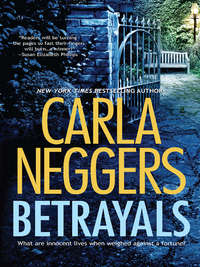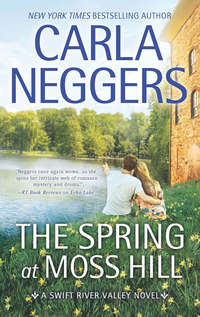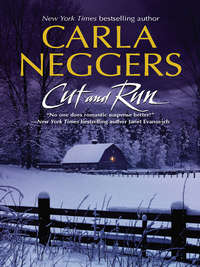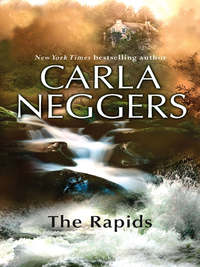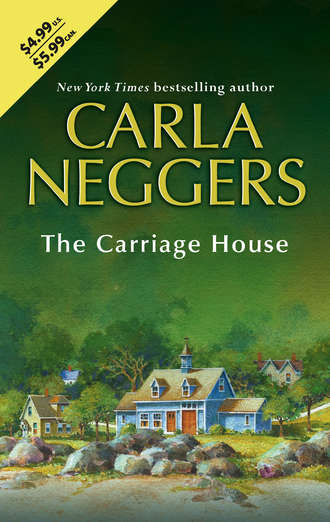
Полная версия
The Carriage House
“Thanks, Susanna.”
“Don’t thank me. As soon as you walk out that door, I’m looking up the name and address of every mental hospital on the North Shore. Don’t worry. I’ll pick out a nice one for you.”
Tess ignored her. “The weather’s supposed to be great this weekend. I think I’ll stop on Charles Street for scones.”
“Glorified English muffins,” Susanna grumbled. “Three times as expensive.”
“And you don’t call yourself a Yankee.”
They both laughed, and Tess heaved her loaded-up bag onto her shoulder and was on her way.
She walked up Beacon Street and behind the Massachusetts State House to the narrow, hilly streets of residential Beacon Hill, with its prestigious Bulfinch-designed town houses, brick sidewalks, black lanterns and surprisingly eclectic population. She’d moved into her basement apartment eight years ago, over her father’s and godfather’s objections. She could have gotten more space for the same money—less money—in other neighborhoods, certainly in her home neighborhood. Davey liked to tease her about trying to pass as a Boston Brahmin, never believing she liked the charm and convenience of Beacon Hill, and didn’t mind the tradeoff of space. With a tiny bedroom, bath and kitchen-living room, she had learned to buy and keep only what she truly needed—which allowed her to pack for her weekend in under forty-five minutes.
She called her father on her cell phone after she’d stopped at a bakery on Charles Street. “I’m on my way to the North Shore for the weekend. I’ll give you a call tomorrow.”
“You going up there alone?”
She could hear the criticism in his tone. “Yes, why not?”
“Because it’s nuts, that’s why not. I hate that guy Ike Grantham. Where the hell is he, anyway? What’s he been doing all these months?” Her father paused for air. “You don’t have a thing for him, do you?”
Tess was irritated with herself for giving her father an opening. She’d asked why not, and now he was telling her. “Ike’s a former client. That’s all. He doesn’t have to keep me informed of his whereabouts.” She knew that to use the words missing, disappeared or even took off would be a huge mistake.
“I don’t like this,” Jim Haviland said.
“You don’t have to like it. Love you, Pop. Have a great weekend.”
“Wish I had a couple of Little League games to go to,” he said, and hung up.
Tess tossed her cell phone back into her satchel. The man never gave up. His ideas about men, women, marriage and family were old-fashioned and completely unreformable. She wondered if her mother had lived, or if he’d remarried, would he still be so stubborn and impossible?
Probably, she decided, and got onto Storrow Drive and headed north.
“Looks as if the Haviland woman’s moved in for the weekend,” Harl said. “I saw her hauling in groceries and camping gear.”
Andrew frowned. “What were you doing, spying on her?”
Harl pinched dead leaves off Andrew’s one indoor plant. It was in the kitchen window, and it wasn’t in good shape. Harl didn’t allow plants in his shop. “I was looking for that goddamn cat.”
“You introduced yourself?”
“No. She didn’t see me.”
Andrew smiled and sat at the table. Harl wouldn’t go out of his way to introduce himself to anyone. He’d eaten dinner with them that night and insisted on cleaning up the dishes. Dolly was in the den watching cartoons, mourning over her cat, who, Andrew was becoming convinced, didn’t plan on returning.
“Lucky she didn’t see you peering through the bushes and call the police.”
Harl grunted. “It’d be the first smart thing she did. What kind of woman spends a weekend alone in a haunted carriage house out here on an isolated point?”
“We’re not even a mile from the village.”
“You don’t think she’s odd?”
“Harl, we live here.”
“Well, our great-great-granddaddy didn’t off anyone in your living room.” He shook his head, his white ponytail trailing several inches down his broad back. He’d let his hair grow since giving up police work. It had turned white a few years after he’d come home from Vietnam, and he’d gotten into bar fights over people saying the wrong thing about his white hair. Andrew had participated in a few of them himself. No point sitting out a bar fight, not in those days.
Harl dumped the dead plant leaves in the trash. “I have to tell you, Thorne, my instincts are all on high alert. You find out how she ended up with that place?”
“Not yet, I haven’t asked.”
“Ask.”
Harl left for his shop, and Andrew went in to shoo Dolly up to bed.
He read her two Madeleine books and a few pages of The Hobbit, but she was preoccupied with her missing cat. She’d pulled out all her stuffed cats and put them in bed with her, leaving very little room for Andrew to sit next to her for their nightly reading.
“Maybe Tippy Tail’s gone on an adventure like Bilbo,” Andrew said, referring to The Hobbit.
Dolly shook her head, her big eyes brimming with tears. She smelled of a fruity bubble bath that he found particularly nauseating, and she hugged three stuffed cats close to her. “She’s dead, Daddy. I know she’s dead.”
He breathed deeply. A six-year-old shouldn’t know so much about death. “Tippy Tail can take care of herself. She’s tough. Trust her, okay? Cats like to have their kittens where little girls can’t find them.”
“Not Tippy Tail.”
“Yes, Tippy Tail.”
“Harl says we can put up posters. I can draw a picture of her, and—and if somebody sees her, they can call us, and we can go get her!” She sniffled, perking up. “Do you think that would be good, Daddy?”
For someone who hated cats, Harl was going out of his way to find this one. “Sure, Dolly. We can do posters in the morning.”
She nodded eagerly, her mood transformed now that she had a plan. This quickly led to indignation. “I don’t think Tippy Tail should have runned away. I’m a princess. She’s supposed to obey me.”
“Cats don’t obey anyone, Dolly. That’s why they’re cats.”
She snuggled down into her pillow, a black-and-white stuffed kitten pressed against her rosy cheek, fat tears on her dark eyelashes. She shut her eyes. “Can you read to me some more?”
Andrew read The Hobbit until she drifted off. He was aware of his own voice in the silent, still room. It was a kid’s room, simply furnished and not overly childish. He wasn’t about to redo it every year. There was an oak dresser Harl had refinished, a round mirror, a bulletin board covered with pictures of cats and fairies, crates of toys and stuffed animals, handheld computer games and a long pegboard overloaded with baseball caps, sequined shawls and at least six different crowns.
Above her bed was a framed cross-stitch Beatrix Potter D that Joanna had done when she was pregnant, teasing herself even then about “turning domestic.” But she’d been happy, excited about their child. Ike Grantham had been off on one of his escapades, not a factor in their lives, although they knew him because they lived in Beacon, where everyone knew the Granthams. Only later, after his sister started dating Joanna’s boss, Richard Montague, did Ike mention how he could help her train to climb Mount McKinley. “If you can chase a toddler around the house, you can climb a mountain.”
Andrew shut The Hobbit, a weighty, oversize edition. He didn’t know how much Dolly understood, but he enjoyed reading to her. Harl never did. He could sit still for hours working on a piece of furniture, but not for more than five minutes with a children’s book. He was back in his shop now, working. Some nights he’d work until dawn.
What was Tess Haviland, Andrew wondered, doing in her carriage house? It had no furniture, lousy wiring. Was she one of Ike’s women? Andrew had been too busy today to ask around town. If anyone would know, it would be Lauren, and Lauren Montague was about the last person he’d want to ask anything. She felt guilty about her brother’s role in Joanna’s death even though Andrew assured her there was no need. Joanna had wanted to climb Mount McKinley. It wasn’t just Ike’s doing.
He headed downstairs, picking up Dolly’s sneakers and the odd toy on the way. He wasn’t much of a taskmaster. He settled into a battered, comfortable leather chair in the den and flipped on the ball game. A stiff wind off the water beat against the tall, old windows. A little atmosphere, he thought with amusement, for Tess Haviland’s first night on the point.
Six
By ten o’clock, Tess was thinking about calling it quits and heading back to the city. But she’d had two glasses of wine with the Brie-and-cucumber sandwich she’d picked up at the bakery, along with her scones for the morning, and she was too sleepy to drive.
She was tempted to get a hotel room for the night. The wind howled and whistled, rattled doors and windows, and her avocado refrigerator was making strange wheezing noises. And it was dark. She was used to streetlights.
All she needed now were a couple of bats.
Or a ghost.
“Now, stop that,” she said aloud, her voice echoing in the big, empty room. She was sitting cross-legged on her sleeping bag. She’d set up camp on the wooden floor just over the kitchen threshold, close to the bathroom and the side door, which would take her straight out to her car.
She had a battery-operated lantern Davey had given her for her birthday one year, a camp mat for padding and her portable white-noise machine with a choice of sounds: ocean, dolphins and whales, a tropical rain forest, a mountain stream. She hadn’t bothered turning it on. Nothing would drown out the sound of that wind.
She shifted her position, casting dramatic shadows all around her. She wasn’t used to such a huge, dark, cavernous space.
She’d tried leaving the kitchen light on, but it flickered and cast a green glow that made her avocado appliances look sickly. The plan was to have a cup of chamomile tea and read until she felt sufficiently sleepy, then switch off the lantern and not look around, just burrow in her sleeping bag and wait until morning.
She was beginning to regard it as an insult that Ike thought this place suited her. Maybe Susanna had a point. And her father and Davey. How much could she get for it?
She heard a sound, somewhere close. She set her mug of tea on the floor and held her breath, listening. What now?
Barns have snakes…
It was probably just a squirrel or a skunk in the lilacs. She’d picked a big bouquet of them and put them in an old mason jar she’d found in a cabinet, feeling rather warm and fuzzy about her carriage house. That was before the sun went down.
This wasn’t the city. She had to expect night sounds she might not recognize. She’d never gone to summer camps in the wilderness. Her father’s idea of an excursion was a subway trip to Fenway Park—and the occasional picnic on the beach right across the street from the carriage house.
There it was again. Tess exhaled, relaxing somewhat now that she knew what it was she was hearing. A meow. It was coming from the cellar, up through the trapdoor.
Dolly Thorne’s missing cat, Tippy Tail. It had to be.
Tess debated ignoring the meow, but it came again, loud and whining. The poor cat was obviously in some kind of distress. And even if the animal was just being obnoxious, she could easily go on all night. Tess flipped on the white-noise machine, but it didn’t mask the cat’s noises, or the wind.
With a put-out groan, she got to her feet and flipped on the kitchen overhead, its greenish light making her feel even more isolated and alone than her lantern. She was wearing warm-up pants and a T-shirt to sleep in, but the cracked linoleum floor was cool on her bare feet.
She walked over to the trapdoor. “Kitty?”
There was no answering meow.
“Kitty, kitty.” She knelt on the floor beside the trapdoor, but had no intention of lifting it and peering into her dark pit of a cellar. “Tippy Tail, hey, are you down there?”
A plaintive, utterly miserable yowl came up through the floorboards. Definitely a cat. No self-respecting, murdering Yankee ghost would make that kind of noise.
Tess swore softly. She had no choice. She couldn’t leave the poor thing down there to fend for herself. What if she were hurt? How would Tess explain a dead cat to little Princess Dolly?
What kind of coward would leave a distressed cat alone in a dark, dank cellar anyway?
Tess sat back on her camp bed and put on her sneakers, then grabbed her lantern and headed out the kitchen door. The trapdoor was out of the question. If she fell off the ladder or it came apart under her, she’d die down in the cellar like a rat.
This reminded her to grab her cell phone off the kitchen counter.
The wind was still gusting, and the sky was dark, with no moon. Tess tried not to pay too close attention to the conditions, refused to think about night creatures on the prowl. At ten o’clock at night in the city, there’d be people on the streets. Four in the morning, she might have more misgivings, but not at ten. Up here, she didn’t know what to expect.
She debated calling the police or pounding on Andrew Thorne’s front door, but decided that would be wimpish. What if it wasn’t the missing pregnant cat?
“It damn well better be,” she muttered, refusing to consider the alternatives to Tippy Tail.
She flicked on the lantern, its light spreading out across the gravel driveway in front of her.
The smell of lilacs, sweet and homey, helped reassure her. Okay, you can do this.
She ducked onto the narrow strip of yard between her house and the lilac hedge. The shaggy grass was up to her calves, conjuring up more of Davey’s warnings about snakes. Tess dismissed them and walked quickly to the bulkhead, its soft, half-rotten wood painted a dull gray. She wondered how the cat could have gotten into the cellar, then spotted a missing pane in a small, two-pane casement window. There you go, she thought. It was just right for a gray cat with a white-tipped tail.
She set her lantern on the ground and pushed at the wooden latch. It broke apart, and she immediately put replacing the bulkhead door on her mental to-do list. Even if she sold the place, potential buyers would want the bare minimums covered.
She grabbed the edge of the bulkhead and lifted. It was heavy, the old wood sodden with years of rain and snow. She could only imagine what her father, Davey and the rest of the guys at Jim’s Place would say if they could see her now.
She propped the bulkhead door open and grabbed her lantern, pointing it down the concrete steps.
Cobwebs. Her stomach muscles tightened. Spiders didn’t scare her, but couldn’t any part of this adventure be easy?
She wondered what she’d have done when she’d heard the noise if she hadn’t known a six-year-old was looking for a missing pregnant cat. Probably gotten a hotel room, she decided, or headed back to Beacon Hill, wine or no wine.
Lantern firmly in hand, Tess made her way down the steep steps, through a gauze of cobwebs. When she came to a six-foot metal door at the bottom, she shone her light on her shirt, pants and arms, just to make sure nothing had crawled off the cobwebs onto her.
Above her, the bulkhead door creaked and moaned in a gust of wind. She had no idea what she’d do if it slammed shut. She didn’t want to think about it.
She pushed open the metal door, and her lantern illuminated a small, finished space under a low ceiling. This wasn’t so bad. There were proper walls, a concrete floor, shelves, wooden crates and a washer and dryer that predated her kitchen appliances. But who would do laundry down here? She would have to take either the trapdoor or the bulkhead to get here, neither of which she would want to negotiate with a basket of dirty clothes.
There was a light switch by the door. Tess flipped it, and one of three fluorescent tubes overhead flickered on. The room, she saw, was dusty and damp, but tidy. She could feel the dust in her throat and wondered about radon. Ike had probably never had the place tested. It could be loaded.
On the other hand, any radon could just seep out the cracks and holes. This was not an airtight modern home. If nothing else, the carriage house “breathed.”
Tess cleared her throat. “Kitty, oh, kitty, where are you?”
Nothing.
“Tippy Tail?”
A moan of a meow sounded from deeper within the cellar. Tess walked over to a dark doorway adjoining the laundry room. She held up the lantern, and swore under her breath when she realized it was a dirt cellar. She could see the outlines of heating ducts, pipes, piles of junk.
“Damn. Come on, cat, don’t you want to let me take you home?”
It was pitch-dark in the dirt cellar, utterly black, with no windows at all. Tess had newfound respect for Davey Ahearn and the forty years he’d spent going in and out of places like this to fix people’s plumbing.
She tilted her lantern, its light striking more cobwebs. “Man, Davey, never mind snakes. I bet you know your spiders.”
But thoughts of him and the way he’d doubted her, what she knew he’d say if he could see her now, rekindled her resolve. She proceeded.
It was a dirt floor, silty, cool and a dull brown. The foundation walls were stone. It was like a cave. As she picked her way deeper into the old dirt cellar, Tess could see the outlines of the trapdoor overhead, light from the kitchen angling through the narrow gaps. She made out the ladder hooked to the ceiling. There was no way. No damn way.
A naked, dusty lightbulb was screwed into a socket in the ceiling, and she had to put her hand through thick cobwebs to reach the string. The bulb gave off a dull, yellowed light. She saw a bunch of dead flies caught in a cobweb.
Pipes and heating ducts hung from the low ceiling, and there was a furnace, a pump, piles of cast-off furniture, buckets, old brooms. Nasty.
The cat meowed again, softly.
“You’d better be a cat.” Tess touched the cell phone on her hip, just to reassure herself. “Tippy Tail, don’t you want to call it a night and come on out?”
She had three choices. One, call it a night herself and turn up the volume on her white-noise machine. Two, get help from the neighbors. Three, proceed.
At least she wasn’t worried about coming upon Jedidiah Thorne. If she were a ghost, she’d find a better place to hang out than down here.
She hit her shin on a rusted bucket. “Ouch—damn it.” But she checked herself, keeping her tone cajoling, slightly high-pitched. She didn’t want to scare the cat. “Come on, kitty.” She felt silly. She’d never had a cat, but one ex-boyfriend had talked to his Siamese this way, so it had to work. “Have you had your babies? Couldn’t you find a nice place? I mean, Tippy Tail, this is a dungeon.”
Tess coughed, resisted the urge to spit. Dirt and dust seemed to invade her eyes, her nostrils, her throat. She pulled her shirt up over her mouth and pushed farther into the cellar, away from the lightbulb and laundry room.
It was so damn dark, even with her lantern and the lightbulb.
“The hell with it. Tippy Tail, you are on your own.”
She pulled on the string, and the lightbulb went off.
The cat meowed again, pitifully, and Tess couldn’t abandon her without one more try. The animal was somewhere close, very close. Tess sighed and shone the lantern into a corner piled with old furniture, none of which looked worth saving. There were dining-room chairs, a metal kitchen table, a couple of old nightstands too rickety even for the country look she planned for the carriage house if she kept it. She spotted an iron bed frame that might have possibilities.
Her light hit a pair of golden eyes, and she had to stifle a startled yell. “Well, there you are.”
The cat was out of reach, tucked amidst old rags and junk in the absolute farthest corner of the old cellar. Tess couldn’t tell if the presumed Tippy Tail had had her kittens. She leaned over a nightstand for a better look, trying not to spook the cat with her lantern.
Suddenly the nightstand gave way. Tess lost her balance, her lantern flying out of her hand, her right arm following the crashing nightstand while the rest of her went sprawling in the opposite direction. She jerked her arm free, but her momentum pitched her backward onto the bed frame.
She landed on her back on the dirt floor.
“Oh, gross!”
And painful. She hurt just above her hip where the bed frame had dug in. She pushed it away, scrambling onto her knees and reaching for the lantern. She was disgusted, shuddering at the thought of what she might be kneeling in. Cobwebs, decayed animal droppings.
She got to her feet, ignoring the pain in her hip, and pointed the light back toward the corner. She was breathing hard, beyond repulsed.
The cat was gone. The commotion must have frightened her off.
Tess was in no mood. “Tough, kitty. It didn’t do much for me, either.” She felt her hip. No blood. Probably just bruised. The pain subsided, slowly. “Tippy Tail?”
Her cell phone was missing, too. It must have gone flying at the same time she had. She brought the lantern around, searching for cat and cell phone.
She spotted the phone in the dirt under the bed frame.
But no cat.
She wasn’t about to continue the night without a phone. Ignoring her bruises and scrapes, she lifted the bed frame and reached down into the dirt. “Just don’t think,” she muttered.
Her light caught something. She wasn’t sure what, but her response was visceral, almost primal. Adrenaline pumped into her bloodstream, and her muscles tightened, every fiber of her body and soul urging her to run.
Bones.
Her mind registered what the rest of her already knew she had seen.
Bones.
And not rat bones. Human bones.
No. This was not possible. She was imagining things because she was totally grossed out from falling onto the dirt floor.
She steadied her lantern for another look. “Jesus.”
It was a human skeleton. A skull, right there in the dirt under the bed frame. She must have dislodged the shallow grave when she’d taken her spill.
Well, it wasn’t a real skeleton. It couldn’t be. Some weird doctor or mad scientist must have lived here, had himself a little fun. It could not be real.
The skull looked real.
“’Alas, poor Yorick.’” Her voice was a rasping, dust-choked whisper, and she couldn’t breathe. She coughed, sick to her stomach. “Holy shit.”
She was blinking rapidly, unable to get a decent breath. Her heartbeat was wild. She took a step backward, then another, then turned and ran.
When she reached the laundry room, she screamed. It was a cathartic scream, no holds barred, loud and deep and unrepressed. When she finished, she shuddered. “Damn.”
She was shaking now, and she flipped off the light and stumbled up the bulkhead steps, just managing to hold on to her lantern. “Holy shit.”
A cat having kittens. Cobwebs. A spooky, dark, old cellar.
And a skeleton.
“My God.”
She didn’t even sound like herself. She charged out into the cool, clear, clean night air and slammed the bulkhead door shut as fast as she could, as if the skeleton might swoop up out of there.
She breathed deeply. Lilacs tinged with ocean salt. The wind was calmer. She breathed again.
“Ike—Jesus, what the hell was that?”
She was drenched in sweat, shaking, coughing dust and God only knew what, and she breathed again, trying to calm herself.
She had no idea what to do. Call the police? Her father? Davey? What did she know about the Beacon-by-the-Sea police? She was alone up here in a strange town, at night. Susanna would come in a flash. Her ex-husband was a Texas Ranger, her parents both in law enforcement.
No. Tess shook her head, breathing more slowly now, more deeply. She must have imagined the skeleton—or, with her vivid imagination, turned something innocent into a skull. This place had been in the Beacon Historic Project’s hands for five years before Ike had turned it over to her. Surely they’d have noticed if a damn skeleton was buried in the cellar.






